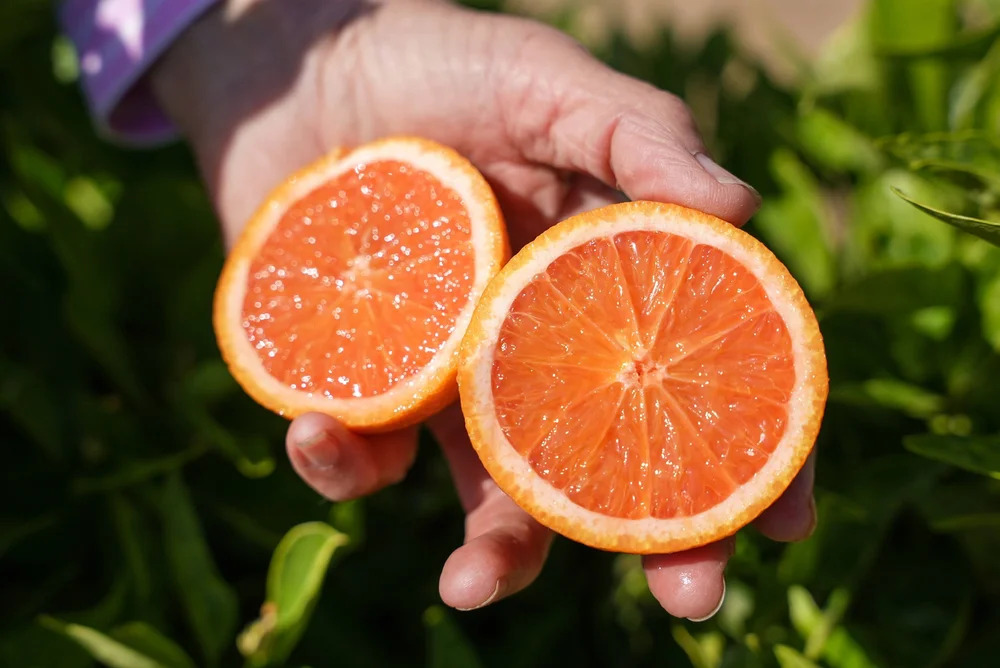A unique-looking branch could deliver new fruit with surprising deliciousness. But it could also be the warning sign of disease or genetic disaster. That’s why, with the help of UC Cooperative Extension advisors at nearby UC Lindcove Research and Extension Center, Lange reached out to UC Riverside’s Citrus Clonal Protection Program, a state-supported initiative dedicated to rigorously testing the safety and viability of new types of citrus. The stock CCPP creates from the original tree, or mutated limb, in Lange’s case, known as “Mother” trees, become the source for each nursery that will grow the variety in the future. The process took three years, but it was time well-spent, Lange says.
“Terrible diseases like HLB [Huanglongbing, or citrus greening disease], if allowed to infect citrus nursery trees, could wipe out California citrus. The job CCPP does is critical,” Lange says.
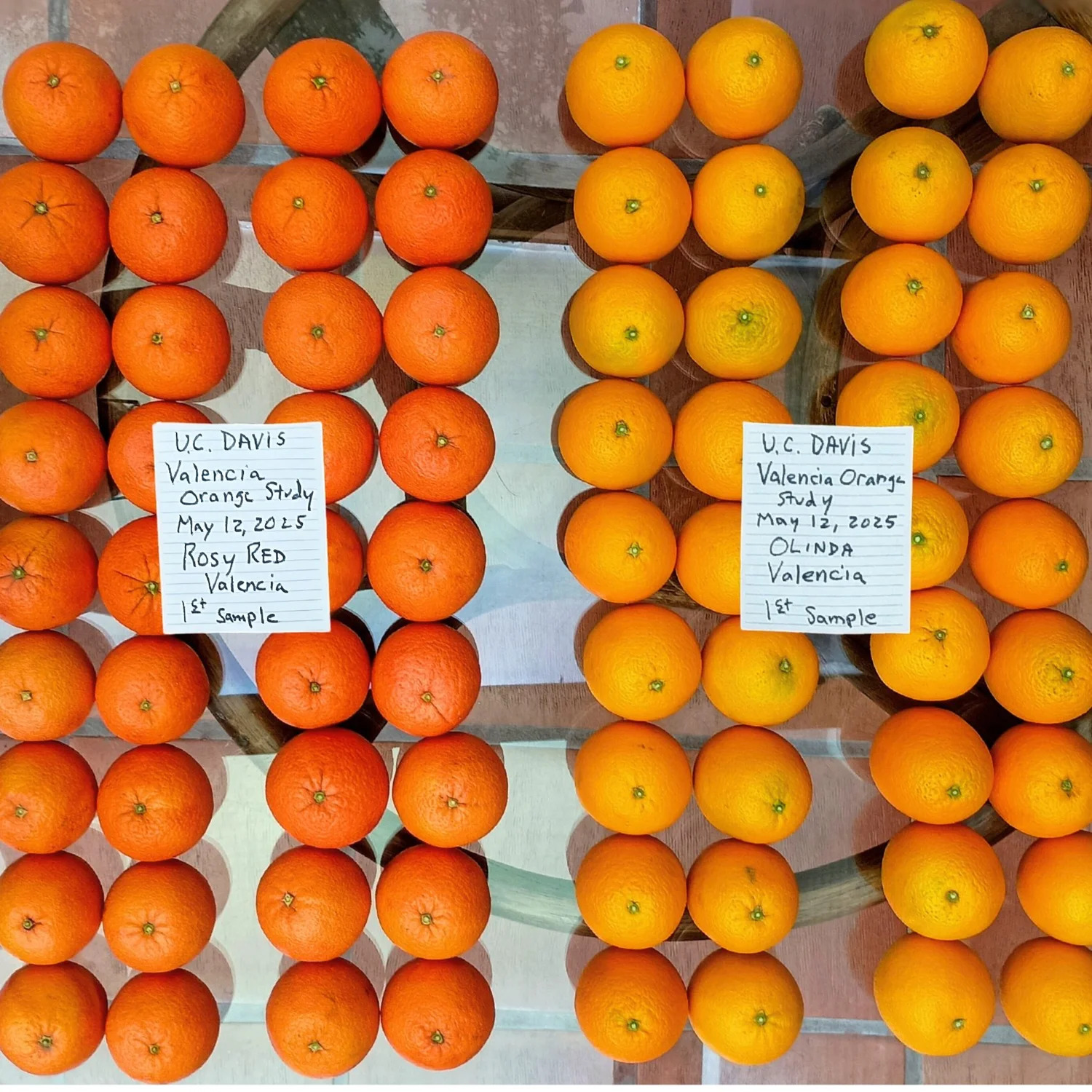
“There would be no Rosy Red Valencia without CCPP,” Lange says. With their help, from one mutated limb, thousands upon thousands of trees have now been planted, and the Rosy Red Valencia has begun to be harvested. Lange received her patent in 2018, and now she, and consumers around the country, can quite literally taste the fruits of her labor.
“I am grateful that this vital service is funded to allow for the growth of new varieties in California and continues to promote the innovation of the California citrus industry,” Lange says.
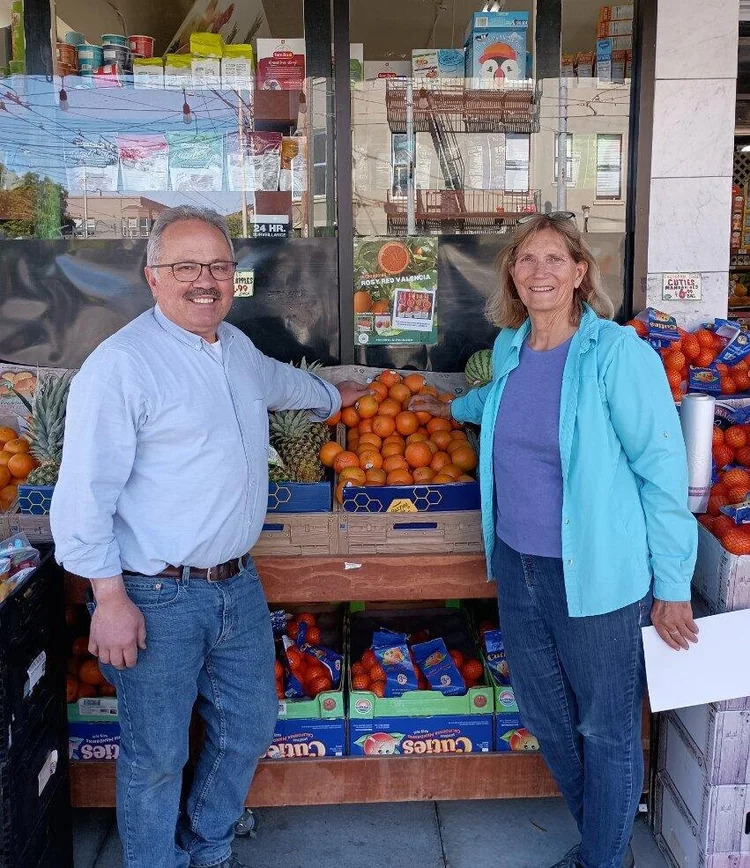
The ‘marriage’ between UC scientists and California farmers
“I’m still amazed that we plant carrots in winter, with seed like a tiny piece of dust that you think will never become anything, and then in July, 55 tons of carrots per acre are coming out of the ground,” Bowles Farming president and CEO Cannon Michael marvels. “For people who don’t farm, it’s a different rhythm of life.”
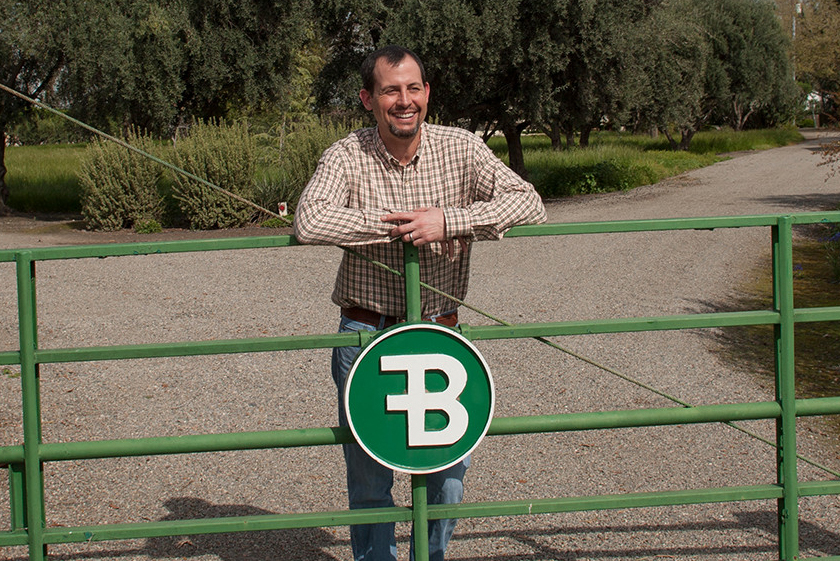
Bowles Farming grows more than just (many, many) carrots. Their produce is a culinary map of California, from alfalfa to almonds, cantaloupes to corn, pistachios to tomatoes, watermelon and more. The farm has been in the family for more than six generations. Still, Michael’s road to farming was non-traditional; he spent his college years at UC Berkeley studying English. To this day, UC is never far from his farm in Merced County, as his team partners closely with scientists from multiple campuses and Cooperative Extension advisors to optimize planting and management.
A major influence for Bowles Farming is Bill Weir, the late UC Cooperative Extension advisor. Weir is a legend among California cotton farmers for creating a narrower cotton harvester that allowed farmers to plant, and therefore harvest, more of the crop. By the time he retired in 2002, greater yields from narrow-row cotton generated over $7 million more revenue per year for growers in Merced County alone. Upon retirement, Weir remarked, “If I were independently wealthy, I still would have liked to do what I did during my career. That’s how much I’ve enjoyed working in agriculture, helping farmers and being a part of Extension.”
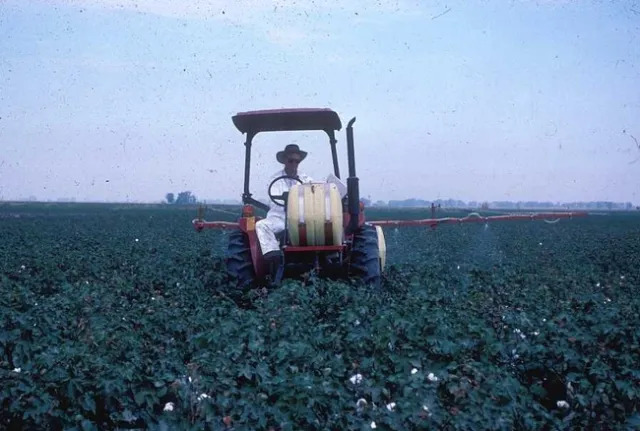
Michael and Bowles Farming benefited from Weir’s expertise and passion. “He really transformed nitrogen use and made some adaptations that not only saved us a lot of money but also helped with compliance and how we better use an input like nitrogen,” Michael says. “We were way ahead of the curve on these things.” For years, Bowles Farming hosted cotton research trials, a living laboratory for Weir and other advisors from which major leaps in farming practice could emerge.
“We like having trials on the farm to see the results on our own ground, but farmers around us certainly benefit from seeing the results of the work, too,” Michael adds. One current project involves UC Merced professor Rebecca Ryals and composting textile waste on the farm.
Textile waste in landfills produces a lot of methane; Ryals’ laboratory will look at how the textiles break down and Michael’s farm will do a large-scale test of this novel way of helping to meet California’s climate and regulatory goals under California’s Senate Bill 1383. Other trials on the farm have incorporated crops like tomatoes. With funding from the California Tomato Research Institute, Michael has worked with UC Davis professor of soil microbial ecology Kate Scow on examining the microbiology of the farm’s soils and how they can better manage tillage. Microbiological analysis of soils can be expensive and requires expertise and time not easily on-hand for busy farmers. That’s where university research and partnership comes in.
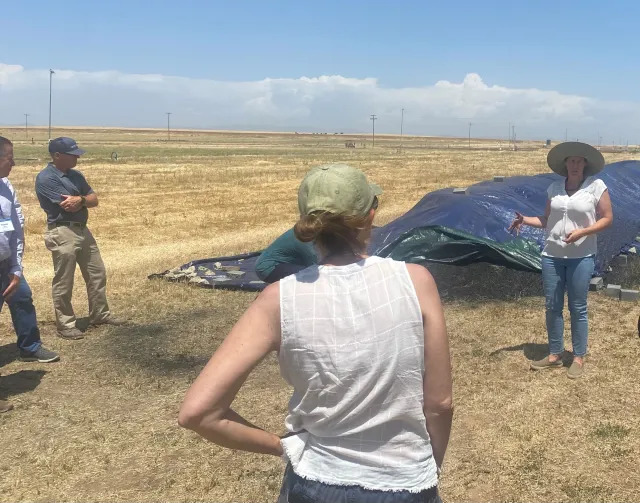
“We need guidance,” Michael says. “It’s a marriage in my mind between academia and the practical, on-the-ground work; they have to work together. An academic solution might look good in the laboratory, but translating it to the field could be challenging, so that’s why there needs to be that back and forth. If you don’t have people to do the back and forth, the farmer is left to figure things out on their own.”
“Think if the tech industry wasn’t continuing to iterate. It’s the same for farming — if we don’t continue to iterate on varieties, don’t continue to address the weed problems, if we don’t continue to explore automation, if it’s only people trying to sell you something who are making those decisions, I think there’s a lot that can be lost. Where do farmers look to find credibility and help with a lot of these things? It should be coming from unbiased folks who are trying to actually look at scientific, peer-reviewed information that we can help make good decisions with.”
UC science gives farmers a global edge
Michael references the global competitiveness of American crops as benefiting from research, too; farmers in California don’t just clothe and feed America, but the whole world. Science has been a key part of U.S. export success, making California produce synonymous with quality and consistency.
“Long-term research is part of the backbone of the whole industry. Cutting off research is going to slow progress,” Michael says. “We should be really concerned with anything that impedes progress. It’s a long-term threat to how productive and how beneficial the work we’re doing is. We want to do the most with every resource we have, every drop of water. We want to use it wisely. All those things get impinged upon when you don’t have a good marriage of scientific research with the daily work. I think you just can’t deny that sort of missing piece is going to reduce global competitiveness and hurt us over the longer term.”
When every drop counts
Less than an hour away, in Firebaugh, Joe Del Bosque is growing cantaloupes that will make their way to tables across the country. If there is such a thing as a celebrity farmer, Del Bosque may be one; he has never shied away from using the media, or social media, to call attention to farming issues. During the historically devastating drought of 2012-2016, following just on the heels of another damaging drought from 2007-2009, Del Bosque drew reporters from across the country along with President Obama to his fields, nearly a third of which were acres of dust. He became the face of a California industry in crisis and a man known for speaking his mind.
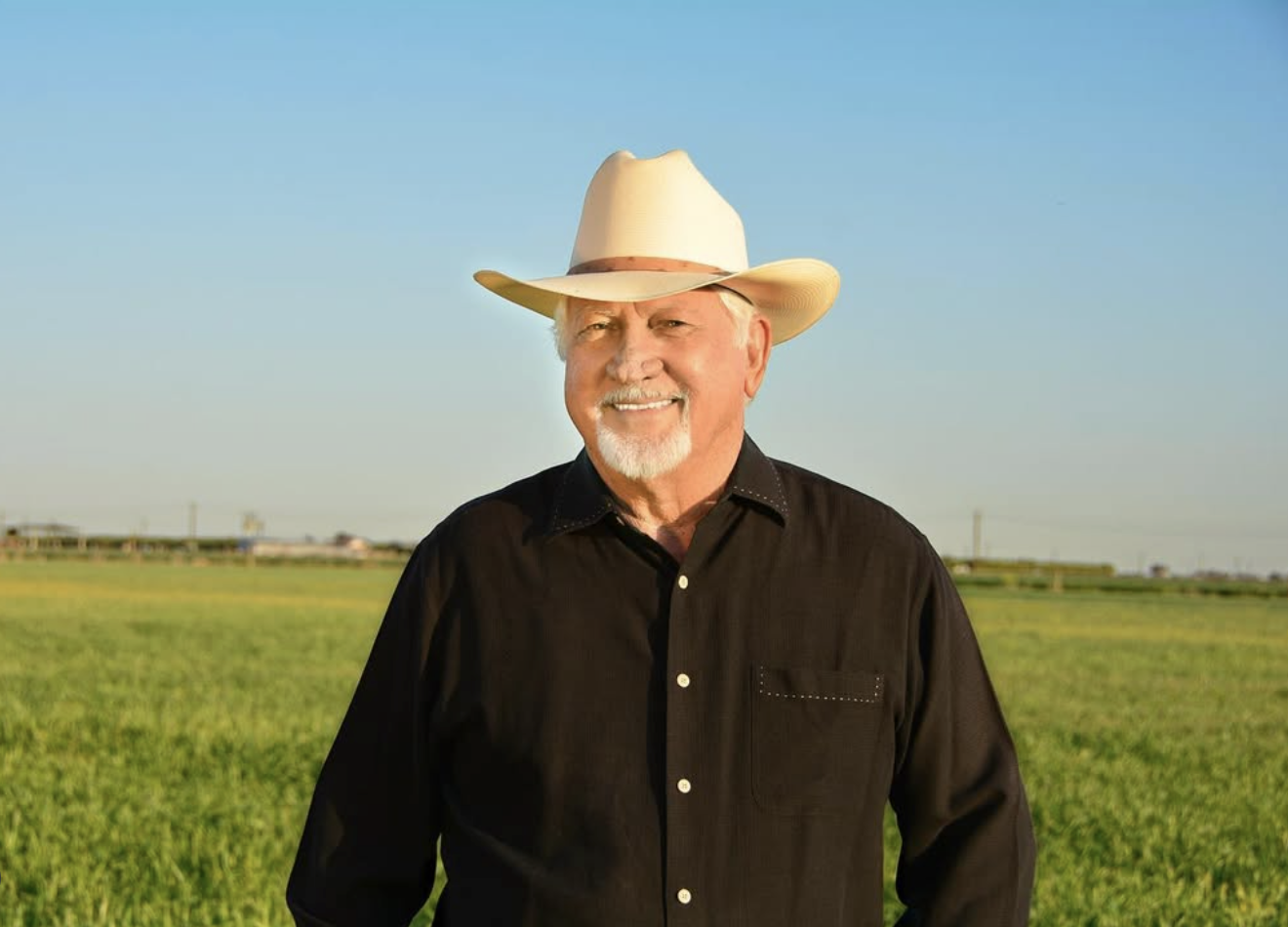
One group that has been there for Del Bosque and his farm is UC, especially on issues that affect the farm most closely, including water.
“We schedule our irrigations of our crops largely based on data developed by the UC system,” Del Bosque says. “We use that every week. We are programming how much water we use on our crops so we are more efficient with our water, with the goal of better production and profitability.”
“UC Cooperative Extension is really valuable to us,” Del Bosque adds. “They know the issues at the ground level. They’re taking theory or studies and putting them to practice to test them to see how well they work. That is really crucial to us. We’re grateful to have the extension service. They have been challenged with budget cuts and so forth. We should be advocating for more budget money for these programs.”
Del Bosque has also shared his expertise, taking part in panel discussions at UC Merced on the future of agriculture and water issues. He appreciates the opportunity to work with researchers to make real impacts on his farm.
“Farmers can’t do the research on their own,” Del Bosque says. “It takes someone like UC to do that type of research for us so we can be better at growing crops and also taking care of our people.”
